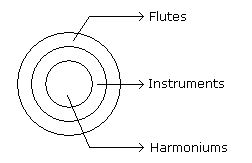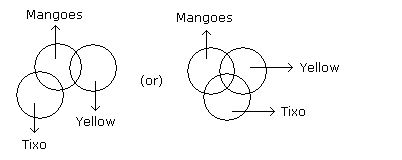 Introduction
Introduction
RBI Assistant 2020 – Preliminary Examination, conducted in Online Mode, has: a duration of 1 hour, a total of 100 questions, and a maximum score of 100 marks, and, consists of 3 sections, namely: English Language, Numerical Ability and Reasoning Ability. Candidates must clear the cut-off in all 3 sections to qualify for the RBI Assistant Main exam. The below sections gives detailed information about RBI Assistant Prelims Examination.
 Imp Dates
Imp Dates
RBI Assistant Recruitment Important Dates
| Event | Date |
|---|---|
| RBI Assistant Apply Online Start Date | 23-12-2019 |
| RBI Assistant 2019 Apply Online Last Date | 16-01-2020 |
| Last Date to pay the Application Fee | 16-01-2020 |
| Download of call letters for Online examination – Preliminary | 1 week prior to the exam |
| RBI Assistant Exam Date 2019 | 14th Feb, 15th Feb 2020 |
| RBI Assistant Prelims Result Date 2019 | Will Update soon!!! |
| RBI Assistant Mains Exam Date 2019 | March 2020 |
| Download of call letters for Online examination – Mains | Will Update Soon!!! |
| RBI Assistant Mains Result Date | Will Update Soon!!! |
 Pattern
Pattern
| RBI Assistant Exam Pattern - Prelims | ||||
|---|---|---|---|---|
| S.No. | Name Of Test | No.of Questions | Maximum Marks | Duration |
| 1. | English Language | 30 | 30 | 20 Minutes |
| 2. | Numerical Ability | 35 | 35 | 20 Minutes |
| 3. | Reasoning Ability | 35 | 35 | 20 Minutes |
| Total | 100 | 100 | 60 Minutes | |
 Syllabus
Syllabus
| Topic | Number of Questions |
|---|---|
| Coding Decoding | 4 - 8 |
| Seating Arrangement | 5 - 8 |
| Arrangement and Pattern | 4 - 6 |
| Coded Inequalities | 5 |
| Syllogism | 3 - 5 |
| Data Sufficiency | 3 - 5 |
| Blood Relations | 1 - 3 |
| Order and Ranking | 0 - 5 |
 Samples
Samples
1. If in a certain language, MADRAS is coded as NBESBT, how is BOMBAY coded in that code?
-
A. CPNCBX
B. CPNCBZ
C. CPOCBZ
D. CQOCBZ
E. None of these
-
A. CHRONRD
B. DSOESPI
C. ESJTPTF
D. ESOPSID
E. None of the above
Directions (1 - 2): P, Q, R, S, T, U, V and W are sitting round the circle and are facing the centre:
P is second to the right of T who is the neighbour of R and V.
S is not the neighbour of P.
V is the neighbour of U.
Q is not between S and W. W is not between U and S.
1. Which two of the following are not neighbors?
-
A. RV
B. UV
C. RP
D. QW
-
A. P
B. U
C. R
D. T
Directions (1 - 2).: In each of the following questions two statements are given and these statements are followed by two conclusions numbered (1) and (2). You have to take the given two statements to be true even if they seem to be at variance from commonly known facts. Read the conclusions and then decide which of the given conclusions logically follows from the two given statements, disregarding commonly known facts.
1. Statements: All the harmoniums are instruments. All the instruments are flutes.
Conclusions:
-
I. All the flutes are instruments.
II. All the harmoniums are flutes.
-
A. Only (1) conclusion follows
B. Only (2) conclusion follows
C. Either (1) or (2) follows
D. Neither (1) nor (2) follows
-
Some mangoes are green.
Tixo is a yellow.
-
A. Only (1) conclusion follows
B. Only (2) conclusion follows
C. Either (1) or (2) follows
D. Neither (1) nor (2) follows
Directions (1-2): In each of the questions below consists of a question and two statements numbered I and II given below it. You have to decide whether the data provided in the statements are sufficient to answer the question. Read both the statements and
Give answer
(A) If the data in statement I alone are sufficient to answer the question, while the data in statement II alone are not sufficient to answer the question
(B) If the data in statement II alone are sufficient to answer the question, while the data in statement I alone are not sufficient to answer the question
(C) If the data either in statement I alone or in statement II alone are sufficient to answer the question
(D) If the data given in both statements I and II together are not sufficient to answer the question and
(E) If the data in both statements I and II together are necessary to answer the question.
1. Question: In which year was Rahul born?
Statements:
-
I. Rahul at present is 25 years younger to his mother.
II. Rahul's brother, who was born in 1964, is 35 years younger to his mother.
-
I. One-fourth of the weight of each pole is 5 kg.
II. The total weight of the three poles is 20 kilograms more than the total weight of two poles.
Q1. Pointing to a photograph of a boy Suresh said, "He is the son of the only son of my mother." How is Suresh related to that boy?
-
A. Brother
B. Uncle
C. Cousin
D. Father
-
A. Q - N + M x P
B. P + S x N - Q
C. P - M + N x Q
D. Q - S % P
Directions (1-5): In the following questions, a part of the sentence (a word or a phrase) has been highlighted in bold. four different ways of writing the word or phrase has been given in the options (b), (c), (d) and (e). Find the correct replacement of the given bold word or phrase. If the given word or phrase is grammatically correct, then select option (a). Option (a) repeats the same word or phrase.
Q1. Kajal ranked 10th from the top and 26th from the bottom among those who pass an examination. 4 students didn’t attend the exam and 6 students failed in the exam.How many students were in the class ?
-
A. 46
B. 45
C. 55
D. 47
-
A. 19
B. 17
C. 16
D. 18








